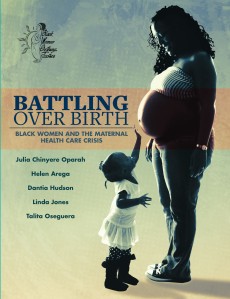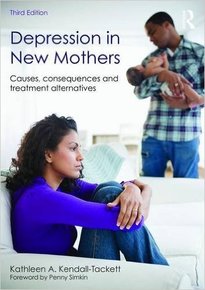Kathleen Kendall-Tackett, PhD, IBCLC, RLC, FAPA examines four reasons our sleep is being disturbed.
Mother-infant sleep confusion
Not surprisingly, mother-infant sleep is always on-topic between breastfeeding advocates and public health officials. Being a frequent speaker at conferences gives me a good sense of what’s happening locally and at the national level.

Unfortunately, in state after state, I’ve seen breastfeeding advocates and public health officials in a showdown. They share the goal of improving infant survival rates but disagree and fight about how to achieve this, wasting energy that could be expended on improving breastfeeding rates and decreasing infant mortality rates. In the process, parents become even more confused.
Here are four of my observations that explain why the sleep issue is not going away any time soon.
 Failure to appreciate what the real dangers are. Most parents sleep with their babies at least part of the night. In the U.S., we have had lots of public health campaigns telling parents outright NOT to bedshare. Yet parents are still bedsharing—in droves (Kendall-Tackett, Cong, & Hale, 2010). That message has had little impact on parental behavior. Rather, it drives parents’ nighttime behavior underground. Since parents cannot talk with their health care providers about how they are handling nighttime parenting, they often improvise and do things that are genuinely dangerous, such as sleeping on the couch with their babies, or with their pets and babies in the same bed—about 50% of families who were bedsharing in our study of 6,410 new mothers were also sleeping with their pets!
Failure to appreciate what the real dangers are. Most parents sleep with their babies at least part of the night. In the U.S., we have had lots of public health campaigns telling parents outright NOT to bedshare. Yet parents are still bedsharing—in droves (Kendall-Tackett, Cong, & Hale, 2010). That message has had little impact on parental behavior. Rather, it drives parents’ nighttime behavior underground. Since parents cannot talk with their health care providers about how they are handling nighttime parenting, they often improvise and do things that are genuinely dangerous, such as sleeping on the couch with their babies, or with their pets and babies in the same bed—about 50% of families who were bedsharing in our study of 6,410 new mothers were also sleeping with their pets!- A lack of respect for cultural differences in sleep practices. In many cultures telling a mother not to bedshare would be to violate what is the normal way for her to parent her babies. At face value, it seems reasonable to say that cultural sensitivity might take a back seat when it comes to infant safety. However, when we look closely, many non-white cultures are kicking white-culture’s collective butts in terms of infant mortality. Let’s take a U.K. example: Professor Helen Ball (Ball et al. (2012)) compared a sample of White-British and South Asian (of Bangladeshi, Indian or Pakistani origin) families in the city of Bradford with regard to nighttime parenting practices. There was significantly more bedsharing among the families of Pakistani origin compared with the White-British families, and yet they had half the sudden infant death syndrome (SIDS) rate. Why on earth would they listen to anyone telling them not to bedshare? And why should we want them to, when clearly that is not the answer? Even in cultures with higher SIDS rates, cultural sensitivity is required when delivering health messages, otherwise mothers will simply ignore the advice, as they are doing now.
-

Adriana mesec maj Failure to respect the need for exclusive breastfeeding. Bedsharing sustains exclusive breastfeeding. A consistent finding is that mothers who exclusively breastfeed are also more likely to bedshare (Ball, 2007; Blair, Heron, & Fleming, 2010). We also found this in our data from the Survey of Mothers’ Sleep and Fatigue. Bedsharing rates are more likely to go up, not down if we encourage mothers to breastfeed exclusively. SIDS researchers are recognizing this. Peter Blair noted: “Advice on whether bed sharing should be discouraged needs to take into account the important relationship with breastfeeding“ (Blair et al., 2010).
 Failure to protect maternal mental health. Exclusive breastfeeding protects mental health. Whether or not mothers should avoid breastfeeding at night in order to lower their risk for depression has been controversial. Seeking to dictate mothers’ nighttime behavior is detrimental to breastfeeding. Several studies (including ours) found that mothers who exclusively breastfeed have significantly better sleep and lower rates of depression (Doan, Gardiner, Gay, & Lee, 2007; Kendall-Tackett, Cong, & Hale, 2011). We even found that to be true for women with a history of sexual assault (Kendall-Tackett, Cong, & Hale, 2013).There was still an effect from the assault, but exclusive breastfeeding lessened its impact on sleep, depression, anxiety, and anger. Unfortunately, partial breastfeeding does not provide these protections. In fact, in our data, there was no significant difference between mixed-feeding and exclusive formula-feeding in maternal sleep or mental health. In short, exclusive breastfeeding protects maternal mental health by improving a mother’s sleep. And as we know from point 3, exclusive breastfeeding means that she is probably also bedsharing.
Failure to protect maternal mental health. Exclusive breastfeeding protects mental health. Whether or not mothers should avoid breastfeeding at night in order to lower their risk for depression has been controversial. Seeking to dictate mothers’ nighttime behavior is detrimental to breastfeeding. Several studies (including ours) found that mothers who exclusively breastfeed have significantly better sleep and lower rates of depression (Doan, Gardiner, Gay, & Lee, 2007; Kendall-Tackett, Cong, & Hale, 2011). We even found that to be true for women with a history of sexual assault (Kendall-Tackett, Cong, & Hale, 2013).There was still an effect from the assault, but exclusive breastfeeding lessened its impact on sleep, depression, anxiety, and anger. Unfortunately, partial breastfeeding does not provide these protections. In fact, in our data, there was no significant difference between mixed-feeding and exclusive formula-feeding in maternal sleep or mental health. In short, exclusive breastfeeding protects maternal mental health by improving a mother’s sleep. And as we know from point 3, exclusive breastfeeding means that she is probably also bedsharing.

Sleep behavior, particularly bedsharing, has proven quite resistant to public health scare campaigns. Let’s admit that such campaigns have not worked. The focus should be on improving sleep safety and lowering infant mortality rates in ways that are consistent with mothers’ beliefs and that do not compromise breastfeeding. Health workers must be willing to engage with each other and with families to find out what families are actually doing, and to work with them to lower the risk and empower parents.
Telling parents not to sleep with big knives simply doesn’t work (Kendall-Tackett, 2012).
References
Ball, H. L. (2007). Bed-sharing practices of initially breastfed infants in the first 6 months of life. Infant & Child Development, 16, 387–401.
Ball, H. L., Moya, E., Fairley, L., Westman, J., Oddie, S., & Wright, J. (2012). Infant care practices related to sudden infant death syndrome in South Asian and white British families in the UK Paediatric & Perinatal Epidemiology, 26, 3–12.
Blair, P. S., Heron, J., & Fleming, P. J. (2010). Relationship between bed sharing and breastfeeding: Longitudinal, population-based analysis. Pediatrics, 126(5), e1119-e1126.
Doan, T., Gardiner, A., Gay, C. L., & Lee, K. A. (2007). Breastfeeding increases sleep duration of new parents. Journal of Perinatal & Neonatal Nursing, 21(3), 200–206.
 Kendall-Tackett, K. A. (2012). “Don’t sleep with big knives”: Interesting (and promising) developments in the mother-infant sleep debate. Clinical Lactation, 3(1), 9–12.
Kendall-Tackett, K. A. (2012). “Don’t sleep with big knives”: Interesting (and promising) developments in the mother-infant sleep debate. Clinical Lactation, 3(1), 9–12.
Kendall-Tackett, K. A., Cong, Z., & Hale, T. W. (2010). Mother-infant sleep locations and nighttime feeding behavior: U.S. data from the Survey of Mothers’ Sleep and Fatigue. Clinical Lactation, 1(1), 27–30.
Kendall-Tackett, K. A., Cong, Z., & Hale, T. W. (2011). The effect of feeding method on sleep duration, maternal well-being, and postpartum depression.
Kendall-Tackett, K. A., Cong, Z., & Hale, T. W. (2013). Depression, sleep quality, and maternal well-being in postpartum women with a history of sexual assault: A comparison of breastfeeding, mixed-feeding, and formula-feeding mothers. Breastfeeding Medicine, 8(1), 16–22.
Kathleen Kendall-Tackett, PhD, IBCLC, RLC, FAPA

Dr. Kendall-Tackett is a health psychologist and International Board Certified Lactation Consultant, and the owner and Editor-in-Chief of Praeclarus Press, a small press specializing in women’s health. She is Editor-in-Chief of two peer-reviewed journals: Clinical Lactation and Psychological Trauma. She is Fellow of the American Psychological Association in Health and Trauma Psychology, Past President of the APA Division of Trauma Psychology, and a member of the Board for the Advancement of Psychology in the Public Interest.
Dr. Kendall-Tackett specializes in women’s-health research including breastfeeding, depression, trauma, and health psychology, and has won many awards for her work including the 2016 Outstanding Service to the Field of Trauma Psychology from the American Psychological Association’s Division 56. She has authored more than 400 articles or chapters, and is currently completing her 35th book, The Phantom of the Opera: A Social History of the World’s Most Popular Musical. Her most recent books include: Depression in New Mothers, 3rd Edition (2016, Routledge UK, in press), Women’s Mental Health Across the Lifespan (2016, Routledge US, in press, with Lesia Ruglass), Psychology of Trauma 101 (2015, Springer, with Lesia Ruglass) and The Science of Mother-Infant Sleep (2014, Praeclarus, with Wendy Middlemiss). Her websites are UppityScienceChick.com, BreastfeedingMadeSimple.com, KathleenKendall-Tackett.com, and PraeclarusPress.com.






















6 Pingback